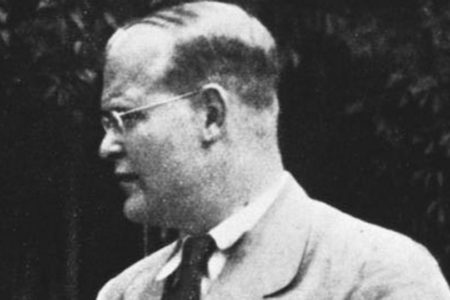What’s In a Name?
One of the wonderful things about becoming parents is the ongoing debate between husband and wife over what to name the child. What couple hasn’t purchased a book of names and then uttered the words, “Hey, what about…?” Every generation seems to generate names that become trendy and popular.
When my wife and I were expecting our first child, we held numerous dialogues and sounded out many possibilities. One thing we knew for certain: The name would start with S. Why? Because I had promised my father that my firstborn would be named for his father Shmuel (Samuel), who had died when I was a child.
You see, in the tradition of the Ashkenazic Jews, children are named for the deceased—most commonly, relatives. It is not acceptable to name a child for a living person. According to legend, it is feared that if the name of an older living person is used for a new baby, when it is time for the death angel to come for the older person, he may become confused and take the baby whose name is the same.
Sephardic Jews, on the other hand, do name children for the living, considering it an honor to do so. They often follow a prescribed pattern, using the name of the paternal grandfather for the first boy, the paternal grandmother for the first girl, and so on down the line through the uncles, aunts, etc. (Dan Rottenburg, Finding Our Fathers, p. 48). Thus, there may be a “Junior” among the Sephardim, but not among the Ashkenazim.
And so, when our first child—a girl—was born, we named her Shayna (Yiddish for beautiful), using the first initial of my grandfather’s name, Shmuel (Samuel). When our first son followed two years later, we named him Samuel. Using the name of a deceased loved one gives a sense of eternality—his memory is prolonged through the life of the new little one. My father has told me more than once of the pleasure it gives him to know that his father’s name lives on.
Later, when we pondered names for our subsequent children, we considered Nathaniel. On mentioning this to my mother, however, we knew we had to look further, as she said through clenched teeth, “You wouldn’t dare!” You see, my father’s name is Nathan, and that was just too close—it would be “bad luck.” My parents feel there is a lot in a name.
A cursory reading of the Jewish Scriptures gives an idea of how important names are to God. He Himself is identified with many names, each one communicating a particular attribute. From the start we see how specific He was in naming His creation, as He called the first man Adam. One of the first things recorded after creation itself is the task given to Adam to name all the animals in the garden. God feels there is a lot in a name.
The first time I read the New Testament, I started in the Book of Matthew and was greeted with a barrage of names of people who begot other people. Why, I wondered, would anyone—let alone God—open a book with such a boring beginning? Little did I realize that the genealogy in Matthew was written with Jewish people in mind. The Messiah had to meet a certain required pedigree, and the only way to verify His identity was to check His claims against the genealogical list in the Temple. Genealogical lists are given in Old Testament books as well—Ezra, Nehemiah, and Chronicles. Once again, there is a lot in a name.
Names can tell a story. Isaac means laughter because both Abraham and Sarah laughed when they were told they would become parents in their advanced age. A year later, Laughter was born, and from then on, every time they called him by name they were reminded of the miracle God had performed in their lives.
I must say that that passage in Genesis came alive for me when, in January 1984, I took my wife Alice to have an ultrasound. “You are going to have twins!” the radiologist told us. Alice cried and I laughed. We didn’t name either one Isaac. We chose instead Joanna and Jonathan, both of which mean Gift of God. We know the significance of a name.
Many names in the Bible commemorate events or tell something of the bearers’ character. Samuel, the baby for whom Hannah prayed so fervently, means Asked of God. Nabal, the foolish husband of Abigail, means Fool. David, known as the friend of God, means Beloved. One name that is significant to both Jews and Christians is Joshua, or Jesus. They are actually the same name, which translated means Jehovah is Salvation.
There is a long-standing tradition, going back at least 2,000 years, of giving two names to children of the Diaspora (dispersion)—those who live and are assimilated into the Gentile world. For instance, my name is Steven. In my neighborhood or in school, I was called Steven. At synagogue, in Hebrew school, or in Sunday school, I was called Yisroel, my Hebrew name. Some Christian commentators think the Apostle Paul’s name was changed from Saul when he was charged with the responsibility of bringing the gospel to the Gentiles. Actually, being a Roman citizen, I believe he always had the name Paul, although His Jewish name remained Saul. There was a radical change in his focus in life, but his names were always the same.
You, dear reader, have a name given to you at birth. Perhaps it is a name you are proud to live up to; perhaps not. Maybe you are known by a nickname that better fits your personality or character. Many names have wonderful meanings that can be a real inspiration in the way we conduct ourselves or the things we strive for in life.
If you are a follower of Jesus the Messiah, you bear His name—Christian. Regardless of your birth name, this alone should be your motivation to be an example of a believer and to live a life pleasing to God.







